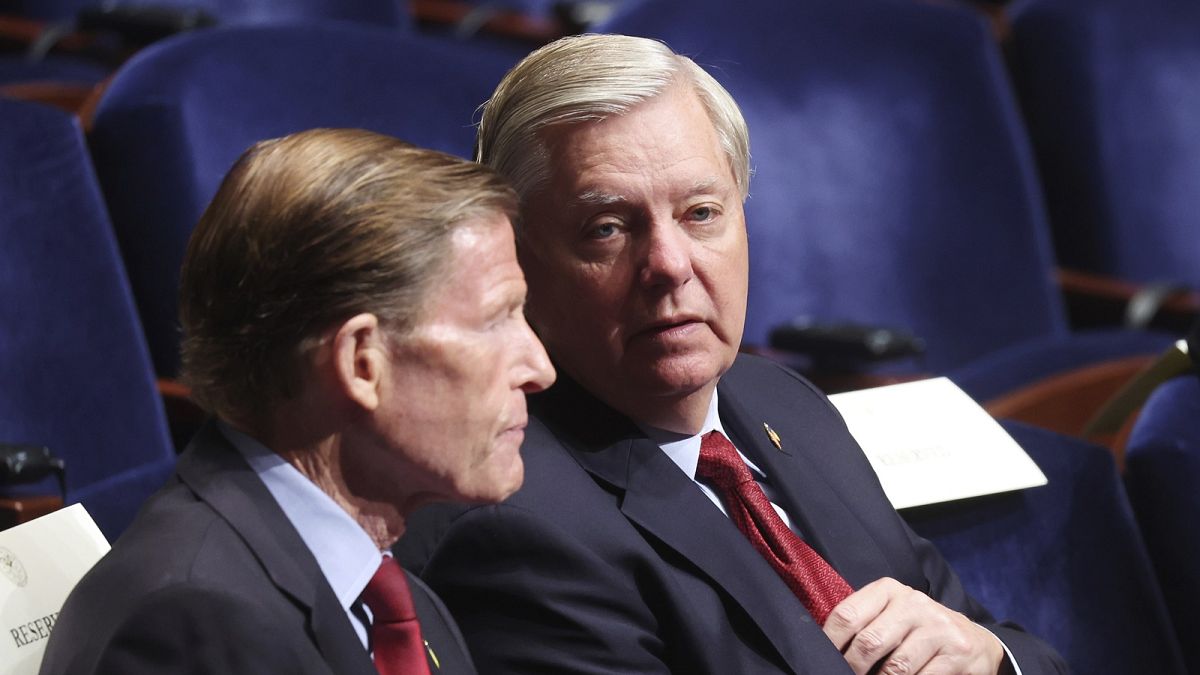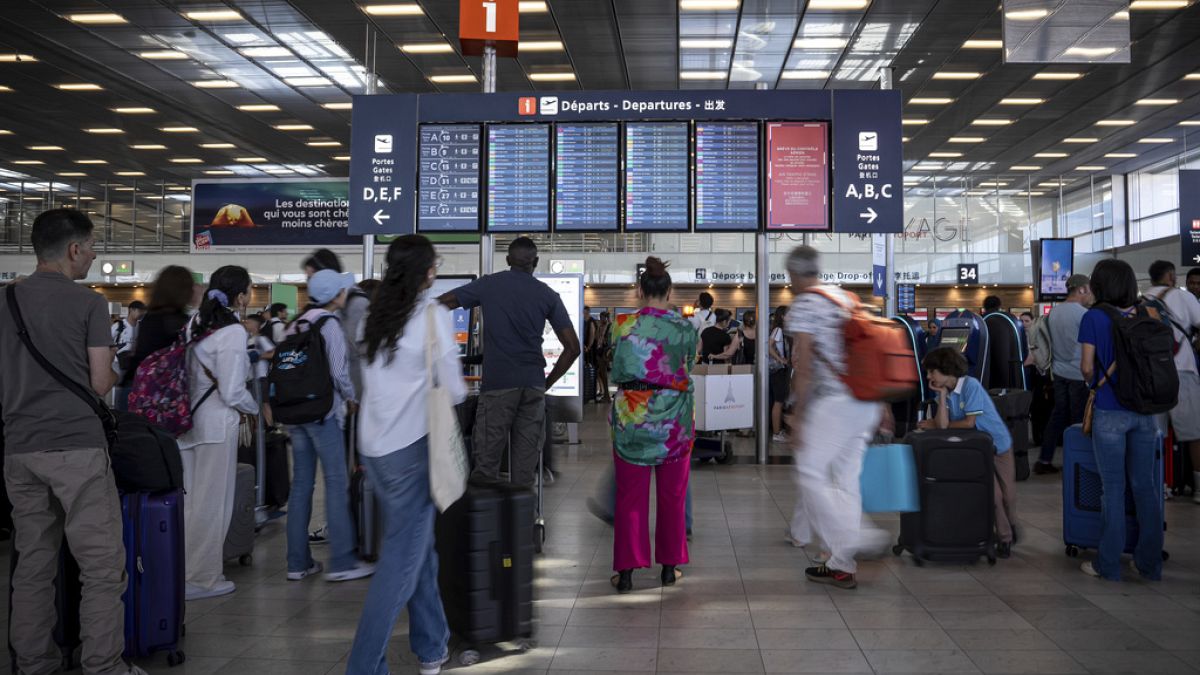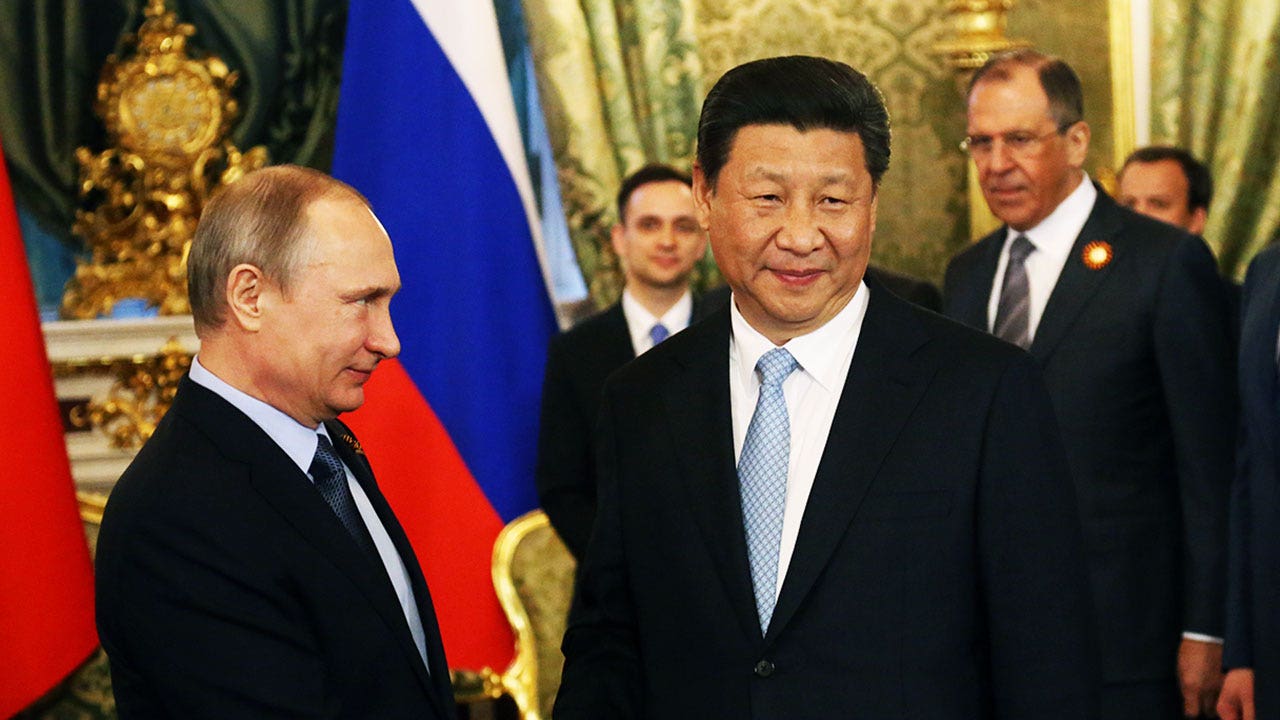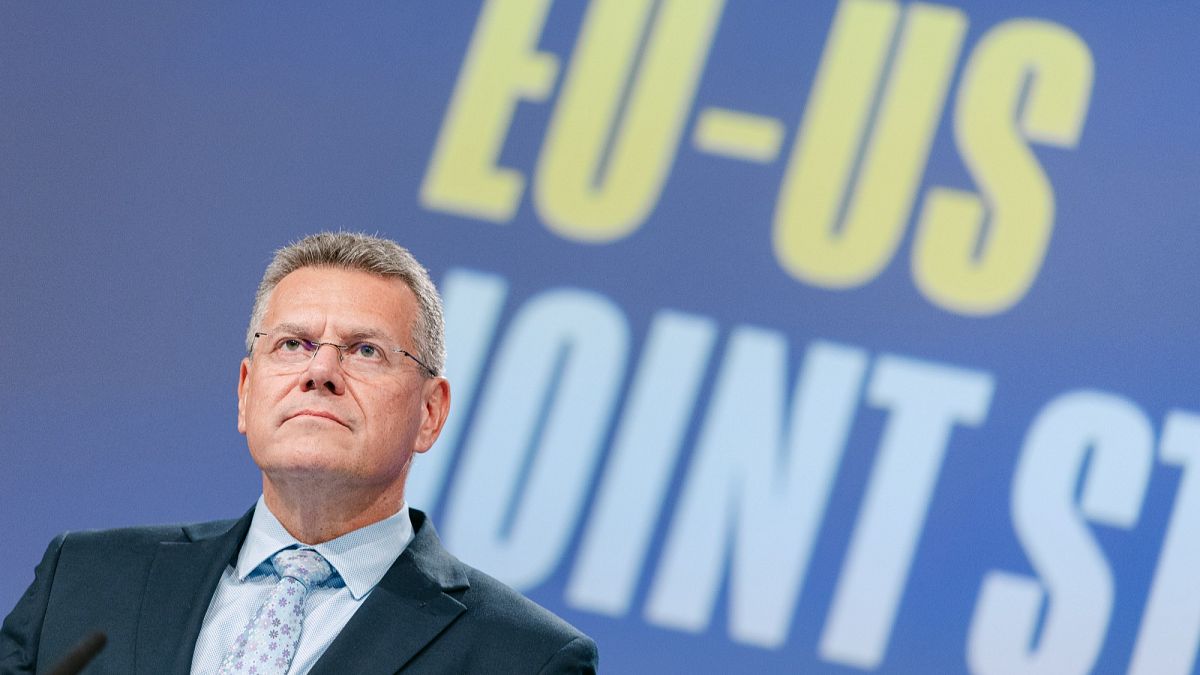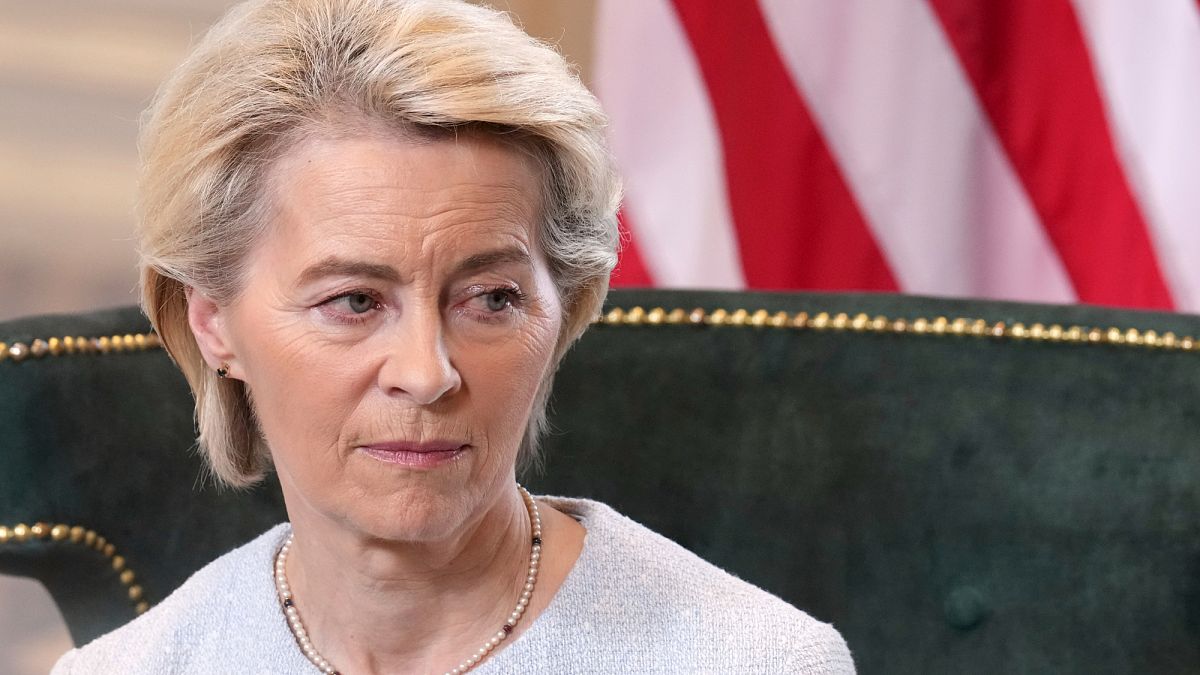A bill rapidly making its way through the United States Senate and gathering impressive bipartisan support threatens to wreak untold havoc on Russia’s economy in a bid to force Vladimir Putin into “good faith negotiations for a lasting peace in Ukraine”.
But the concerted push, jointly promoted by Lindsey Graham, a Republican from South Carolina, and Richard Blumenthal, a Democrat from Connecticut, also risks devastation for roughly half the European Union.
“Our legislation will isolate Russia – putting it on a trade island by imposing stiff tariffs on other countries that support these atrocities,” Graham and Blumenthal said last week as they announced the text had secured 81 signatures in the 100-seat Senate.
Besides a wide range of primary sanctions and duties against the Kremlin, including sweeping prohibitions on financial transactions with Russian entities, the bill also foresees secondary tariffs on countries that still do business with Moscow.
In particular, it zeroes in on Russia’s energy exports, an indispensable source of revenue to maintain the costly full-scale invasion of Ukraine.
The text drafted by Graham and Blumenthal proposes a tariff of “not less” than 500% on any country that “knowingly sells, supplies, transfers, or purchases oil, uranium, natural gas, petroleum products, or petrochemical products that originated in the Russian Federation.” In other words, any nation on Earth that consumes Russian energy.
According to the senators, the law is mainly intended to “hold China accountable for propping up Putin’s war machine by buying cheap Russian oil from the shadow fleet.” The critical assessment of Beijing’s “no-limits” partnership with Moscow is widely shared in Brussels, where the “shadow fleet” has become a highly pressing concern.
“Without China’s economic support, Putin’s war machine would come to a grinding halt,” the two senators said.
And yet, given the vast extraterritorial scope of the bill, the no-holds-barred offensive against Moscow and Beijing has the potential to spill over and inflict intense pain on disparate nations worldwide, also in Europe, at a time of sky-high trade tensions.
Old habits die hard
Despite unprecedented efforts to wean the bloc off Russian energy, several member states remain hooked. Last year, the EU spent an estimated €23 billion on Russian fossil fuels, exceeding the military support provided to Ukraine.
Gas, consistently spared from any sanctions due to a lack of unanimity, led the chart.
Today, five coastal states – France, Spain, Belgium, the Netherlands and Portugal – act as entry points for Russian-made liquefied natural gas (LNG), which last year saw a 9% uptick in purchases. Italy, Greece, Hungary, Slovakia and Bulgaria receive flows of Russian gas through the pipelines that crisscross the continent.
Hungary and Slovakia, meanwhile, get Russian oil through the Druzhba pipeline, indefinitely spared from an EU-wide ban at Budapest’s request.
Additionally, five countries – Bulgaria, the Czech Republic, Hungary, Slovakia and Finland – operate Russian-made nuclear reactors that require specific Russian-made fuels.
The European Commission has presented a roadmap to phase out all Russian energy by the end of 2027, but the action plan is still in early stages. Hungary and Slovakia have come out strongly against the roadmap, warning it would imperil competitiveness.
The state of play means that, should the Graham-Blumenthal bill pass and apply as originally conceived, something far from guaranteed at this stage, up to 12 member states could be subject to a punitive 500% tariff when they sell to the American market.
Both goods and services could be targeted, further spreading the pain across the many corners of the economy. The 500% tariff would come “in addition” to anti-subsidy and anti-dumping duties already in place.
Primary and secondary sanctions should remain in place until “the Government of the Russian Federation has entered into a peace agreement with Ukraine”, the law says.
The offices of Graham Blumenthal did not reply to a request for comment.
Making it work
In Brussels, the Senate bill is seen as a double-edged sword.
On the one hand, it is considered a welcome initiative to tighten the screws on the Kremlin, something that President Donald Trump has until now refused to do. On the other hand, it is an explosive gamble that could exacerbate transatlantic turmoil and ravage export-dependent sectors overnight.
If introduced, the secondary tariffs would throw a grenade right into the ongoing trade talks between the Commission and the White House.
Both sides have set a 9 July deadline to strike an agreement. Otherwise, Trump has threatened to slap an across-the-board 50% tariff on all EU-made goods.
“We try to coordinate with the US on sanctions to the extent possible because the more we join on that front, the bigger impact we can have,” a Commission spokesperson said when asked about the Graham-Blumenthal bill, without commenting on the devastating effects it could have on parts of the EU economy.
“So coordination in that sense, in the various fora, does take place.”
But there is a glimmer of hope for Brussels: the draft law offers the possibility for the president to grant a 180-day exemption from the 500% tariff to a country, good or service – as long as doing so is justified for “national security interests”.
The one-time waiver would be left entirely at Trump’s discretion: the president would be able to hand-pick whom he saves and whom he punishes. This would give individual member states a chance to visit the Oval Office and lobby for a reprieve, a ritual that Trump appears to enjoy, particularly when cameras are present.
The question of enforcement might also dent the impact on the bloc.
Maria Shagina, a senior fellow at the International Institute for Strategic Studies (IISS), believes implementing the 500% tariffs would be logistically challenging, if not impossible, due to the numerous countries that regularly purchase Russian energy. The list of clients features some of America’s strategic partners, like India and Turkey.
“Would the US monitor exports of these fossil fuels, and if so, how? Would it impose blanket bans on all goods imported from countries that import Russian fossil fuels? How does this square with an all-out trade war against allies and adversaries alike?” she asked.
The law, Shagina noted, should be seen in the context of American politics and Trump’s much-publicised mission to achieve a settlement between Russia and Ukraine, which has made limited progress since his first phone call with Vladimir Putin in February.
“The bill does not seek to put congressional pressure on Russia independently of Trump’s actions regarding Russia,” Shagina told Euronews.
“Rather, it aims to support Trump’s rhetoric on Russia.”
Read the full article here







